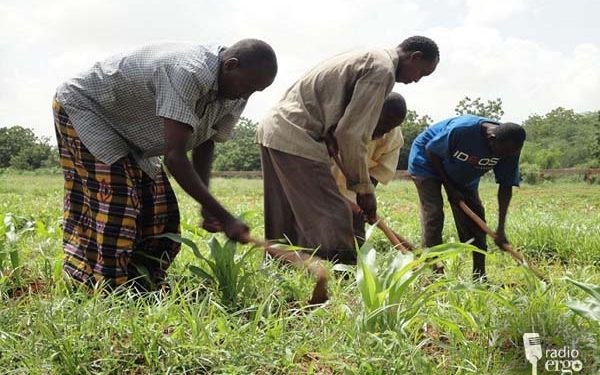For poor families and those who have been displaced by drought, a cooperative farming initiative in the village of Gabgabo in Ethiopia’s Somali Region has become a source of income.
Asha Abdi Askar, a single mother of nine children, makes $40 per month at the Sheikh Muhidin farm by planting, tending to, and harvesting tomatoes.
Despite the laborious work, she is now able to provide two meals per day for her family.
“I arrive at work at six in the morning, and we break for lunch at eleven. Our workday ends at 6:00 p.m. We operate in that manner, and we hardly ever take breaks,” she said.
Following clashes between the Somali and Oromo communities in 2018, during which her husband was killed and her 1.5-hectare farm was taken, this mother was forced to leave Tuliguled village.
She is willing to put in a lot of effort on the farm after struggling to make ends meet by working occasional cleaning jobs.
She has been saving money to buy livestock while earning extra money for packaging the tomatoes.
“With this money, I have created a new world for myself. I have 30 goats and 15 cows,” she boasted.
Asad Mohamed Saleban, a father of six, makes $40 per month by twice daily watering the crops at the cooperative.
The family was down to just one meal per day after he lost his last 30 goats and 10 cows to the drought in Gabgabo.
“I wasn’t working, so when I saw this opportunity, I seized it. When you’re unemployed, you worry about a lot of things. For example, we used to struggle to find food, but that’s no longer a concern, he said.
He has also learned new farming techniques that may come in handy down the road.
“I had no idea that this land was arable. Despite the fact that I lack the resources to fund my own farm, I remain optimistic and eager to launch my farm someday,” he said.
Mustafe Abdalle Ibrahim, the CEO of the Sheikh Muhidin cooperative, revealed to Radio Ergo that Jigjiga and Fafan markets are where their produce is sold. The cooperative’s initial capital was 70,000 birr ($700) and ten investors. The 50-hectare farm employs 50 people, the majority of whom come from underprivileged backgrounds and have been displaced by conflict and drought.

